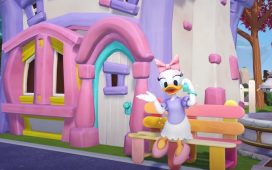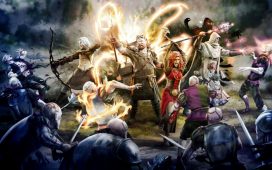
I regularly listen to a radio show called This American Life and was surprised that a recent episode had a story on Aerith’s death in Final Fantasy VII. It’s always interesting hearing what other media makes of gaming and I was hoping that the show would approach this subject with the same openness and genuine curiosity as they do with every other subject. You should have a listen yourself but I can’t help feel they took a slightly patronising tone.
I have to say I didn’t cry at Aerith’s death myself but calling her one-dimensional and a prop is unfair. It shows a basic misunderstanding of game’s characterisation. Games characters don’t have to fill in every single detail in the way other narrative forms do as you are role-playing as the characters yourself. You are using your imagination to build the characters up from a sometimes admittedly basic template.
The Cloud and Aerith I know are not quite the same as anyone else’s. That’s part of why it’s easier to emotionally connect to them. You actually spend a long time in Aerith’s company, just chatting to her, fighting, and experiencing things together. You grow together in the way you would meeting a new friend. That’s what makes her death seem so personal.
The show was obviously focussed on her as a weak female character who needed rescuing and assumed only teenaged boys had cried at her passing. I don’t believe this can be true, I’m sure female players would be just as likely to be upset at losing her (hopefully someone will back me up there).
It is also ignoring the fact she was a great asset in battle, not just with healing but with attack magic too. I’m pretty sure she rescued Cloud more than the other way round. We shouldn’t forget there were two other major female characters too, in Tifa and Yuffie, who were both great fighters and characters who were the equal of any of the males on the team.
Now don’t get me wrong, I’m not claiming the female characters in Final Fantasy VII are necessarily perfect female representations when considered by modern standards. But the radio show even using a 22-year-old game to illustrate their point isn’t right. Interesting and textured female characters weren’t exactly the norm in films and TV from that time either. As with all culture, games have moved on and are improving all the time.
When I think of good recent female characters, I think of Max and Chloe from Life Is Strange, whose interactive story really did make me get teary eyed in a way film, TV, or radio could never quite do. I guess I shouldn’t be surprised to find games still treated with less reverence than other art forms but I like to think those old attitudes are gradually dying and eventually games will get the respect they deserve from everybody.
Ryan O’D














